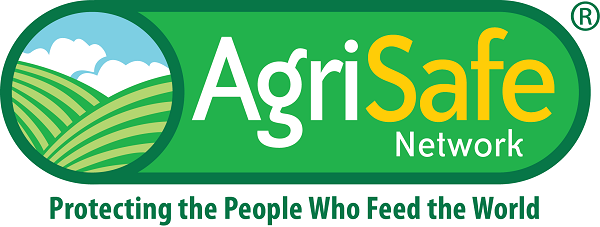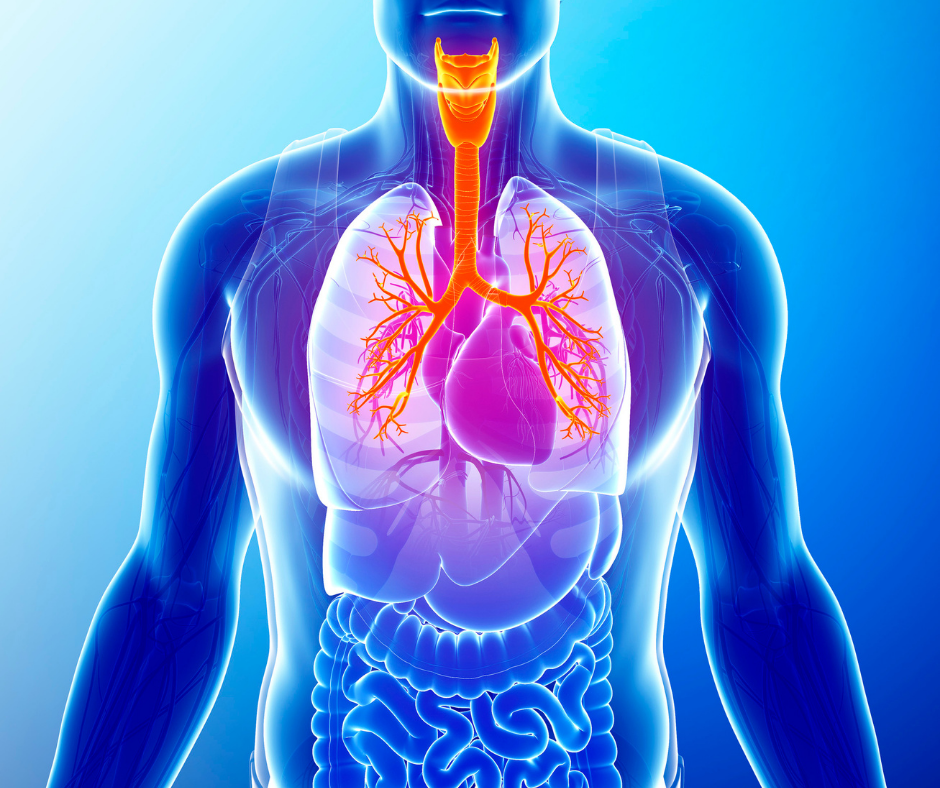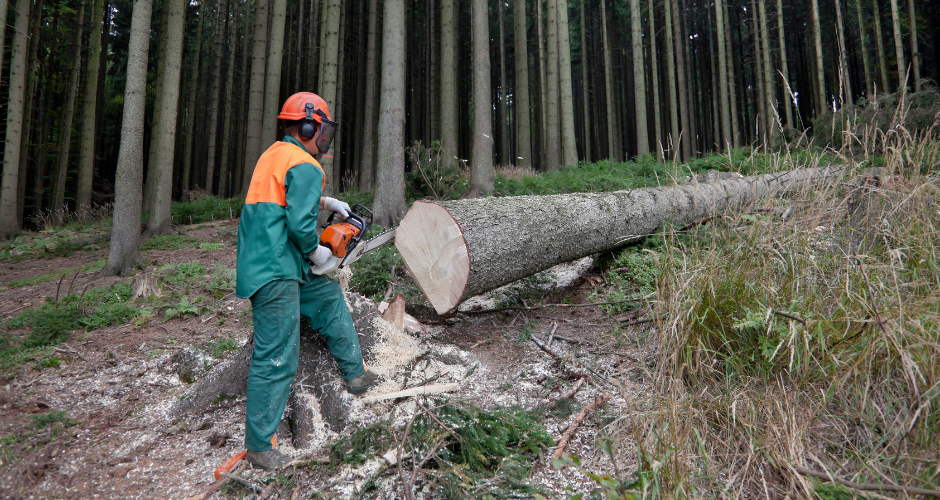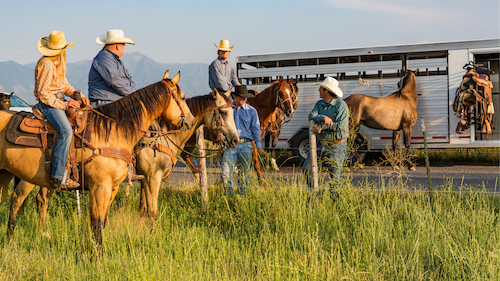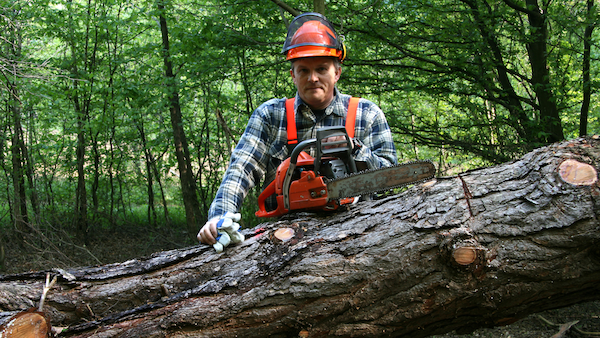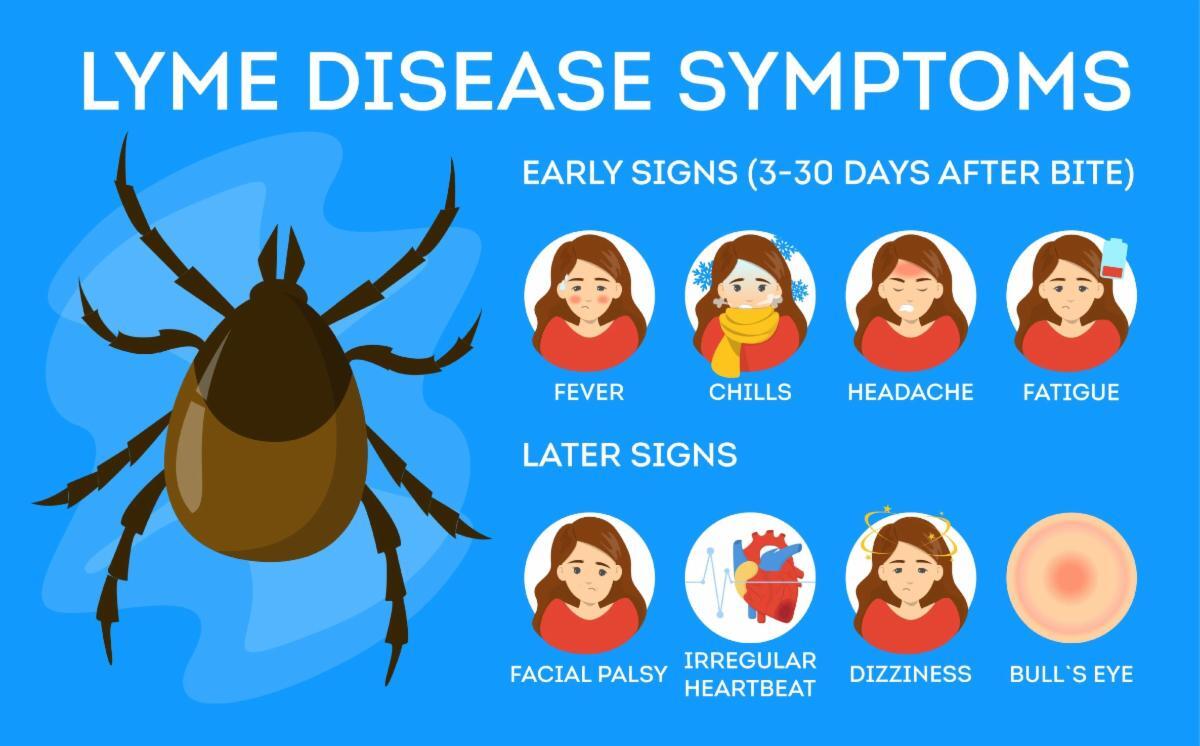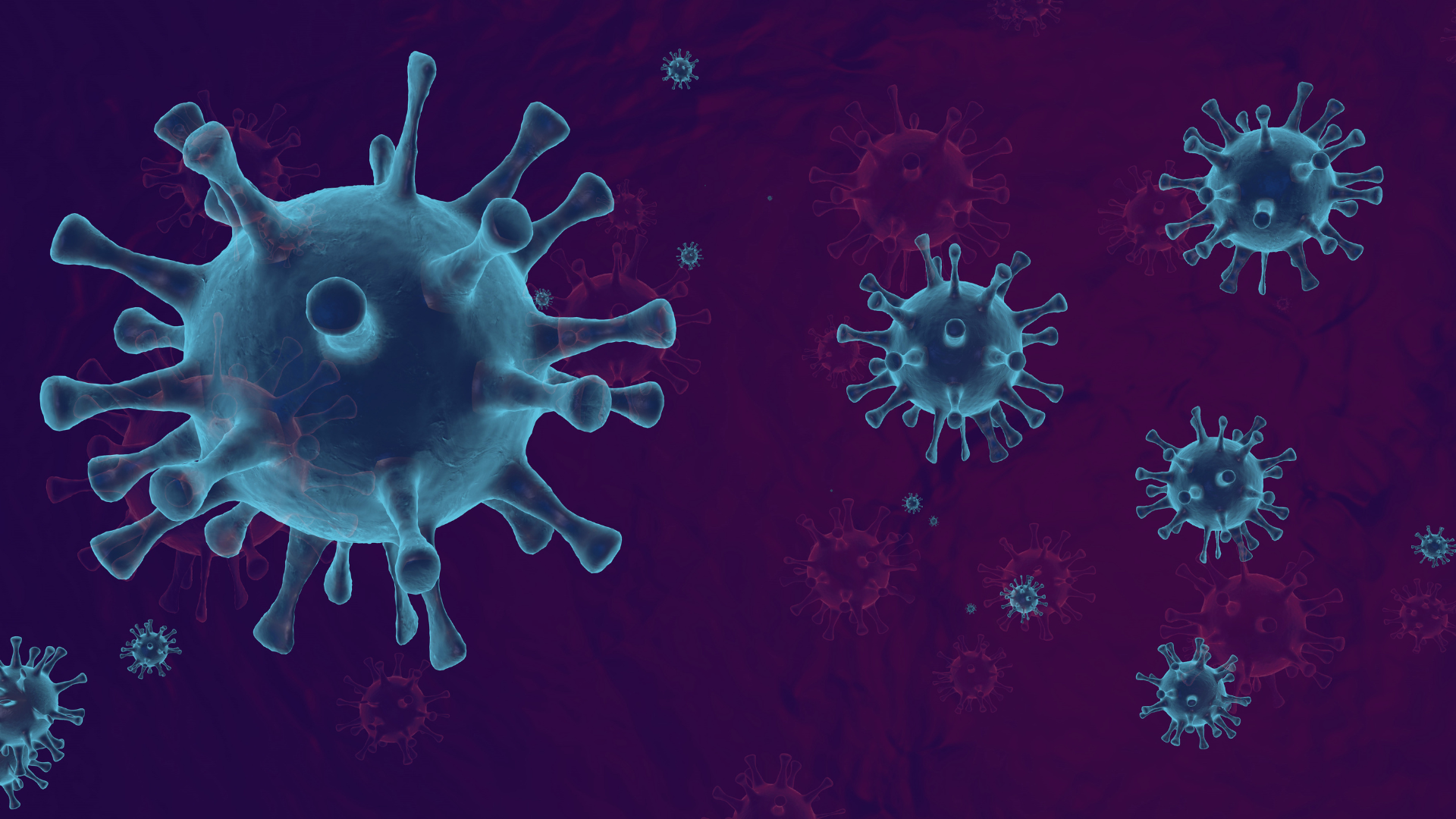AgriSafe Learning
Catalog Advanced Search
-
Contains 3 Component(s) Includes a Live Web Event on 05/16/2024 at 12:00 PM (CDT)
The webinar will address non-allergic respiratory hazards (dusts, mists, fumes, and gases) affecting agricultural worker, farmers, and farm families living and working in agricultural environments. The focus will be recognizing and preventing environmental and occupational exposures that may result in morbidity and mortality resulting from unprotected or unrecognized respiratory hazards. An overview of the screening of farm workers and farm families that can be provided by health care workers and public health professionals to those working and living in agricultural environments and steps to avoid potentially dangerous exposures and prevent disability or death.
The webinar will address non-allergic respiratory hazards (dusts, mists, fumes, and gases) affecting agricultural worker, farmers, and farm families living and working in agricultural environments. The focus will be recognizing and preventing environmental and occupational exposures that may result in morbidity and mortality resulting from unprotected or unrecognized respiratory hazards. An overview of the screening of farm workers and farm families that can be provided by health care workers and public health professionals to those working and living in agricultural environments and steps to avoid potentially dangerous exposures and prevent disability or death.
Learning objectives:
- Understand which agricultural respiratory exposures can result in acute and chronic non-allergic respiratory health conditions in those living and working in agricultural environments.
- Know which type of respiratory personal protective equipment is appropriate for different agricultural exposures
- Understand and be able to provide respiratory exposure medical screening as part of routine rural health care medical history.
- Know which agricultural work is not acceptable for children and minors due to hazardous respiratory exposures.

Steven Kirkhorn, MD, MPH, FACOEM
Medical Director
AgriSafe Network
As AgriSafe Medical Director, Dr. Kirkhorn is responsible for the strategic direction and technical review of the occupational health curriculum, resources, and services. Dr. Kirkhorn serves as the medical leader liaison offering program wide engagement and collaboration, visibility, and opportunity directly contributing to AgriSafe’s success.
In addition to his role at AgriSafe, Dr Kirkhorn serves as Occupational Medicine Advisor to the NIOSH Upper Midwest Center for Agricultural Safety and Health at the University of Minnesota.
He received a BS in Zoology and MD at the University of Minnesota and a MPH in Environmental Health at the University of Minnesota School of Public Health. He served as the Academic Director of the Midwest Center for Occupational Health and Safety of the HealthPartners Occupational Environmental Medicine Residency. He is boarded in Occupational Medicine and Family Practice and has been on the adjunct faculty of the University of Minnesota and University of Wisconsin Family Medicine Departments. He has been a practicing Occupational Medicine physician since 1991 and prior to that was a rural Family Practitioner for 10 years in Alaska and Wisconsin. He had completed a year sabbatical and fellowship in Agricultural Medicine in 1997-1998.
He previously was the Medical Director of the National Farm Medicine Center and Chair of Occupational Health and Chair/ Regional Service Line Director of Occupational Health at Marshfield Clinic in Wisconsin. He has previously been on the board of AgriSafe and editor for 8 years of the Journal of Agromedicine as well as participating in of multiple agricultural health organizations nationally and in Minnesota and Wisconsin.
He is the recently retired Director and Section Chief of Occupational Health at the Minneapolis Veterans Administration Health Care System and Adjunct Associate Professor in the Division of Environmental Health Sciences in the University of Minnesota School of Public Health and Assistant Clinical Professor in the Department of Medicine University of Minnesota Medical School.
His interests include, agricultural and rural occupational and environmental health, curriculum development, as well as birdwatching, biking, and kayaking. He is also a Master Naturalist through the University of Minnesota Extension.
-
Register
- Non-member - $30
- Member - Free!
- More Information
-
Contains 6 Component(s), Includes Credits Recorded On: 04/24/2024
Forestry workers may be subject to extreme heat and cold. Working outdoors makes people more likely to become dehydrated and experience heat-related illness or heat stress. High temperatures reduce work capacity and may lead to heat stress and dehydration. Although exposure to heat stress is preventable, thousands become sick from occupational heat exposure every year, and some cases are fatal. Similarly, cold weather can reduce dexterity, blood flow, muscle strength, and balance. Hypothermia, frostbite, trench foot, and chilblains are all illnesses and injuries caused by cold stress. However, forestry workers can avoid heat-related illness and cold stress with proper information and preventative action. This presentation will explore both weather-related conditions and their impact on outdoor workers.
Summary: Forestry workers may be subject to extreme heat and cold. Working outdoors makes people more likely to become dehydrated and experience heat-related illness or heat stress. High temperatures reduce work capacity and may lead to heat stress and dehydration. Although exposure to heat stress is preventable, thousands become sick from occupational heat exposure every year, and some cases are fatal. Similarly, cold weather can reduce dexterity, blood flow, muscle strength, and balance. Hypothermia, frostbite, trench foot, and chilblains are all illnesses and injuries caused by cold stress. However, forestry workers can avoid heat-related illness and cold stress with proper information and preventative action. This presentation will explore both weather-related conditions and their impact on outdoor workers.
Intended Audience: This course is intended for workers in forestry and logging, including fallers, first-line supervisors/managers of forestry workers, logging equipment operators, sawing machine setters, operators and tenders, and truck drivers.
Objectives: After the training, participants will be able to…
- Define Heat Stress, Cold Stress, and their related conditions.
- Identify vulnerable populations and critical warning signs for interventions.
- Share essential resources for Workplace Safety Practices.
This material was produced under grant #SH-000099-SH3 from the Occupational Safety and Health Administration, U.S. Department of Labor. It does not necessarily reflect the views or policies of the U.S. Department of Labor, nor does mention of trade names, commercial products, or organizations imply endorsement by the U.S. Government.

Knesha Rose-Davison, MPH
Public Health and Equity Director
AgriSafe Network
Mrs. Knesha Rose-Davison serves as the Public Health and Equity Director for AgriSafe Network. She has over 17 years of public health experience in maternal and child health, community health, health disparities, and advocacy. In May 2016, she joined AgriSafe Network as their health communications director, quickly growing into their public health programs director, where she managed employer-employee safety training for youth working in agriculture, opioid safety for health providers and agricultural workers, and women’s health topics. Knesha obtained her Bachelor of Science in Biological Sciences (2002) and a Master of Public Health (2006) from Northern Illinois University. In June 2016, she obtained a certificate in Agricultural Medicine focused on rural occupational health, environmental health, and safety. She is a member of the American Public Health Association and the Louisiana Public Health Association, where she serves in leadership. Knesha is passionate about serving vulnerable populations and ensuring health access and equity, and she aligns all her work with these causes.
-
Register
- Non-member - Free!
- Member - Free!
- More Information
-
Contains 6 Component(s), Includes Credits Recorded On: 12/13/2023
Forest workers face unique ergonomic challenges due to their exposure to extreme environmental conditions, heavy workload, and dangerous tools and machines. The forest sector has one of the highest rates of Musculoskeletal Disorders (MSDs), almost 100 times higher than the industrial targets the National Institute for Occupational Safety & Health (NIOSH) set. This program is intended to help forest workers identify ergonomic issues leading to musculoskeletal injuries and discover resources to aid in injury treatment and prevention.
Summary: Forest workers face unique ergonomic challenges due to their exposure to extreme environmental conditions, heavy workload, and dangerous tools and machines. The forest sector has one of the highest rates of Musculoskeletal Disorders (MSDs), almost 100 times higher than the industrial targets the National Institute for Occupational Safety & Health (NIOSH) set. This program is intended to help forest workers identify ergonomic issues leading to musculoskeletal injuries and discover resources to aid in injury treatment and prevention.
Objectives: At the end of the webinar, participants will be able to…
1. Identify work site hazards and potential resulting musculoskeletal injuries.
2. Identify three initiatives aimed at reducing risks related to musculoskeletal injuries.
3. Locate evidence-based resources in the forestry health and safety field that address ergonomic security.
Intended Audience: This course is intended for workers in forestry and logging, including fallers, first-line supervisors/managers of forestry workers, logging equipment operators, sawing machine setters, operators and tenders, and truck drivers.

Abigail Kahrs, MPH
Program Coordinator
AgriSafe Network
Abigail Kahrs is the Program Coordinator for AgriSafe. She holds a bachelor’s degree in Animal Science as well as a Master’s in Public Health. She organizes, and coordinates educational opportunities and resources for farmers, farm labor contractors, farm workers, and their families on issues associated with health and work safety (pesticide safety, weather protection, and other occupational hazards) as well as overall agricultural worker family well-being. She primarily assists in the scheduling, training, and reporting of women’s health, infectious diseases, and youth safety programs at AgriSafe Network.
-
Register
- Non-member - Free!
- Member - Free!
- More Information
-
Register
-
Contains 7 Component(s), Includes Credits
In the wake of the global impact of severe acute respiratory syndrome coronavirus 2 (SARS-CoV-2) and the ensuing coronavirus disease 19 (COVID-19), the urgency to safeguard agricultural employees from infectious diseases has become paramount. Acknowledging the rapid and profound effects of the pandemic on a global scale, particularly its impact on individuals engaged in essential agricultural work, there is a heightened need to implement robust measures to mitigate the heightened risk of adverse health and economic consequences among this workforce. Addressing the challenges posed by the post-COVID era, it is imperative to adapt and enhance workplace safety protocols to ensure the well-being of agricultural workers, recognizing their critical role in sustaining essential food production. This presentation aims to emphasize proactive measures that employers can implement to minimize the transmission of infectious diseases. Key focus areas will encompass education and training, the proper utilization of personal protective equipment, adherence to rigorous hygiene practices, effective sanitation and disinfection protocols, robust communication and outreach strategies, well-prepared emergency response plans, and the incorporation of cultural sensitivity considerations. Employers can create safer and healthier work environments by addressing these comprehensive elements.
Summary: In the wake of the global impact of severe acute respiratory syndrome coronavirus 2 (SARS-CoV-2) and the ensuing coronavirus disease 19 (COVID-19), the urgency to safeguard agricultural employees from infectious diseases has become paramount. Acknowledging the rapid and profound effects of the pandemic on a global scale, particularly its impact on individuals engaged in essential agricultural work, there is a heightened need to implement robust measures to mitigate the heightened risk of adverse health and economic consequences among this workforce. Addressing the challenges posed by the post-COVID era, it is imperative to adapt and enhance workplace safety protocols to ensure the well-being of agricultural workers, recognizing their critical role in sustaining essential food production.
This presentation aims to emphasize proactive measures that employers can implement to minimize the transmission of infectious diseases. Key focus areas will encompass education and training, the proper utilization of personal protective equipment, adherence to rigorous hygiene practices, effective sanitation and disinfection protocols, robust communication and outreach strategies, well-prepared emergency response plans, and the incorporation of cultural sensitivity considerations. Employers can create safer and healthier work environments by addressing these comprehensive elements.
Intended Audience: Farm/Ranch owners and operators, health and safety professionals, and anyone who serves as safety personnel in an agricultural setting.
Objectives: After the program, participants will be able to…
- Develop a comprehensive understanding of infectious disease control measures to mitigate exposure risks for agricultural workers and employers.
- Formulate an infectious disease assessment and control plan by incorporating guidelines provided by the CDC.
- Demonstrate awareness of the effectiveness of vaccines in preventing infectious diseases within the agricultural workplace.
This material was produced under grant number SH-000099-SH3 from the Occupational Safety and Health Administration, U.S. Department of Labor. It does not necessarily reflect the views or policies of the U.S. Department of Labor, nor does mention of trade names, commercial products, or organizations imply endorsement by the U.S. Government.

Steven Kirkhorn, MD, MPH, FACOEM
Medical Director
AgriSafe Network
As AgriSafe Medical Director, Dr. Kirkhorn is responsible for the strategic direction and technical review of the occupational health curriculum, resources, and services. Dr. Kirkhorn serves as the medical leader liaison offering program wide engagement and collaboration, visibility, and opportunity directly contributing to AgriSafe’s success.
In addition to his role at AgriSafe, Dr Kirkhorn serves as Occupational Medicine Advisor to the NIOSH Upper Midwest Center for Agricultural Safety and Health at the University of Minnesota.
He received a BS in Zoology and MD at the University of Minnesota and a MPH in Environmental Health at the University of Minnesota School of Public Health. He served as the Academic Director of the Midwest Center for Occupational Health and Safety of the HealthPartners Occupational Environmental Medicine Residency. He is boarded in Occupational Medicine and Family Practice and has been on the adjunct faculty of the University of Minnesota and University of Wisconsin Family Medicine Departments. He has been a practicing Occupational Medicine physician since 1991 and prior to that was a rural Family Practitioner for 10 years in Alaska and Wisconsin. He had completed a year sabbatical and fellowship in Agricultural Medicine in 1997-1998.
He previously was the Medical Director of the National Farm Medicine Center and Chair of Occupational Health and Chair/ Regional Service Line Director of Occupational Health at Marshfield Clinic in Wisconsin. He has previously been on the board of AgriSafe and editor for 8 years of the Journal of Agromedicine as well as participating in of multiple agricultural health organizations nationally and in Minnesota and Wisconsin.
He is the recently retired Director and Section Chief of Occupational Health at the Minneapolis Veterans Administration Health Care System and Adjunct Associate Professor in the Division of Environmental Health Sciences in the University of Minnesota School of Public Health and Assistant Clinical Professor in the Department of Medicine University of Minnesota Medical School.
His interests include, agricultural and rural occupational and environmental health, curriculum development, as well as birdwatching, biking, and kayaking. He is also a Master Naturalist through the University of Minnesota Extension.
-
Register
- Non-member - Free!
- Member - Free!
- More Information
-
Contains 6 Component(s), Includes Credits
Stress can directly impact safety. Whether managing forestry wildfires or working long strenuous days harvesting and hauling timber, the forestry and logging workforce face unique situations that can predispose stress and challenges to mental well-being. The agriculture, forestry, fishing, and hunting (AgFF) industries has one of highest percentages of deaths by suicide. Key factors contributing to despair and distress include financial losses, chronic illness or pain, a sense of work-life imbalance, and lack of mental health support. And it is common to encounter circumstances beyond their control, such as unpredictable weather patterns, rapidly changing prices, and long workdays sometimes in isolation. Perceived lack of control can lead to helplessness and hopelessness, anxiety, depression, substance use and suicide. This session will explore the topic with a review of specific risk factors, and discuss ways to support this workforce in an unpredictable environment.
Summary: Stress can directly impact safety. Whether managing forestry wildfires or working long strenuous days harvesting and hauling timber, the forestry and logging workforce face unique situations that can predispose stress and challenges to mental well-being. The agriculture, forestry, fishing, and hunting (AgFF) industries has one of highest percentages of deaths by suicide. Key factors contributing to despair and distress include financial losses, chronic illness or pain, a sense of work-life imbalance, and lack of mental health support. And it is common to encounter circumstances beyond their control, such as unpredictable weather patterns, rapidly changing prices, and long workdays sometimes in isolation. Perceived lack of control can lead to helplessness and hopelessness, anxiety, depression, substance use and suicide. This session will explore the topic with a review of specific risk factors, and discuss ways to support this workforce in an unpredictable environment.
Intended Audience: This course is intended for workers in forestry and logging, including fallers, first-line supervisors/managers of forestry workers, logging equipment operators, sawing machine setters, operators and tenders, and truck drivers.
Objectives: At the conclusion of the training, participants will be able to…
- Identify the factors that contribute to stress overload in the forestry and timber harvesting occupations.
- Relate the effects of stress overload to the safety of the work site and personal life.
- Identify effective strategies for effective stress management to improve safety and quality of life.
This material was produced under grant number SH-39184-SH2 from the Occupational Safety and Health Administration, U.S. Department of Labor. It does not necessarily reflect the views or policies of the U.S. Department of Labor, nor does mention of trade names, commercial products, or organizations imply endorsement by the U.S. Government.
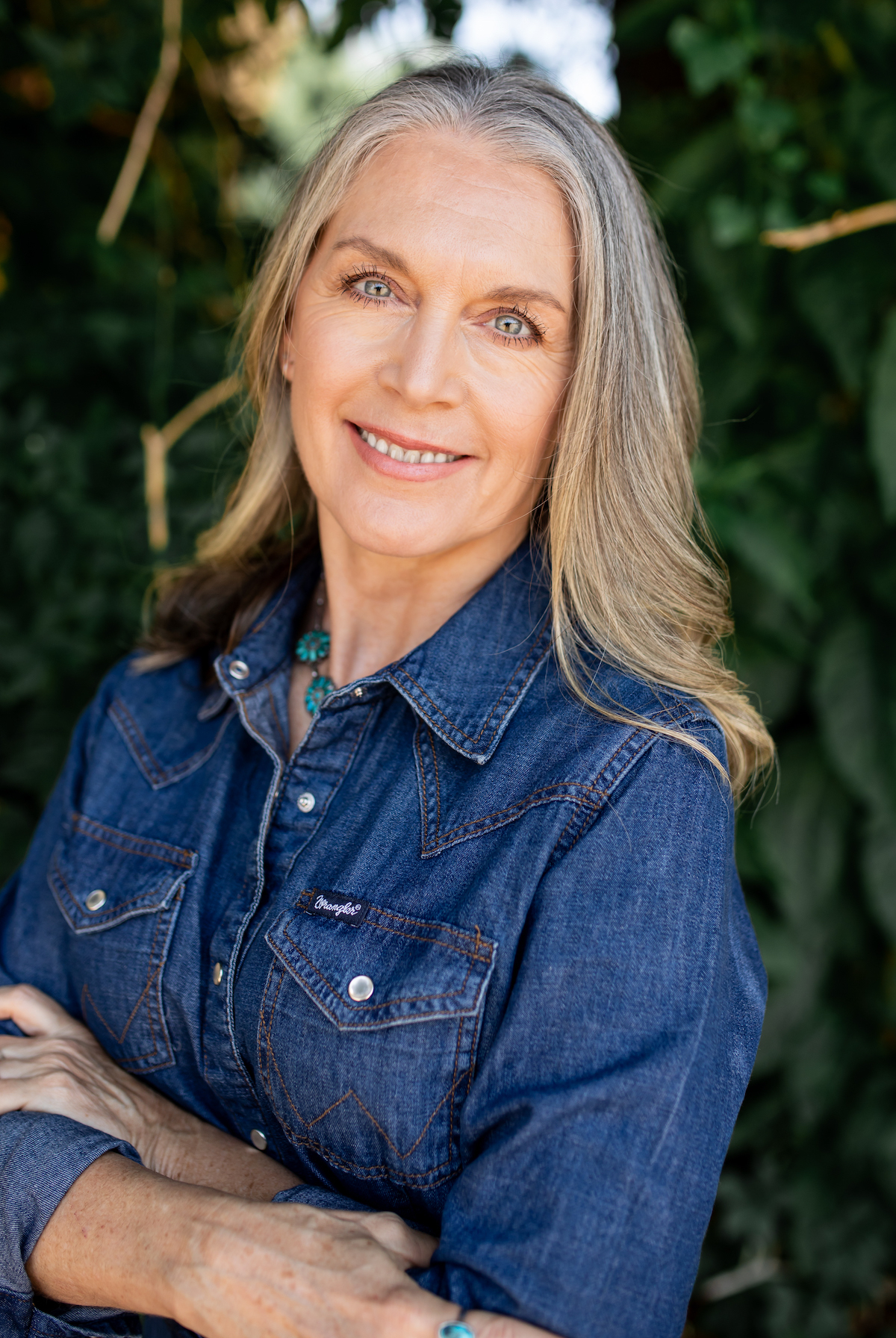
Tara Haskins, DNP, MSN, RN, AHN-BC
Total Farmer Health Director, AgriSafe Network
Tara Haskins is a registered nurse with 33 years of clinical experience. She holds a Masters in Psychiatric Mental Health Nursing and a Doctorate of Nursing Practice in Forensics. For the last 12 years, she has been a nurse educator in psychiatric-mental health concepts. Tara has experience in crisis/suicide intervention and addiction treatment in both outpatient and inpatient settings. She is a 2018 AgriSafe Nurse Scholar graduate. As a National Rural Health Association Fellow, she collaborated on a policy paper on disaster preparedness and response in rural communities. Tara continues to advocate at a national level for rural health services and programming.
-
Register
- Non-member - Free!
- Member - Free!
- More Information
-
Contains 5 Component(s), Includes Credits Recorded On: 11/15/2023
As people spend more time outdoors, so do many insects and pests. Among them are ticks, which are small bloodsucking insects. The deer tick (also known as the black-legged tick) is found mainly in the Eastern and upper Midwestern regions of the U.S. It can cause conditions such as Lyme disease – the most common vector-borne disease in the United States. This webinar will cover the things you need to know to prevent tick bites when working outdoors, how to remove a tick if bitten, as well as the symptoms that can result from tick bites that may indicate Lyme Disease.
Summary: As people spend more time outdoors, so do many insects and pests. Among them are ticks, which are small bloodsucking insects. The deer tick (also known as the black-legged tick) is found mainly in the Eastern and upper Midwestern regions of the U.S. It can cause conditions such as Lyme disease – the most common vector-borne disease in the United States. This webinar will cover the things you need to know to prevent tick bites when working outdoors, how to remove a tick if bitten, as well as the symptoms that can result from tick bites that may indicate Lyme Disease.
Intended Audience: This course is intended for Ag professionals, educators, and individuals involved in working and recreation outdoors.
Objectives: At the end of this webinar, participants will be able to:
Gain an understanding of tick-borne disease control measures to reduce exposure risks among ag workers.
Describe Lyme Disease and its regional variation.
Describe symptoms of the different types of Lyme Disease.
Identify workers’ rights and employers’ responsibilities for the workplace.
Abigail Kahrs, MPH
Program Coordinator
AgriSafe Network
Abigail Kahrs is the Program Coordinator for AgriSafe. She holds a bachelor’s degree in Animal Science as well as a Master’s in Public Health. She organizes, and coordinates educational opportunities and resources for farmers, farm labor contractors, farm workers, and their families on issues associated with health and work safety (pesticide safety, weather protection, and other occupational hazards) as well as overall agricultural worker family well-being. She primarily assists in the scheduling, training, and reporting of women’s health, infectious diseases, and youth safety programs at AgriSafe Network.
-
Register
- Non-member - Free!
- Member - Free!
- More Information
-
Register
-
Contains 7 Component(s), Includes Credits
COVID-19, Influenza, and RSV are all viruses spread by droplets and direct contact with infected people. Each virus has its specific causes, symptoms, severity, and vaccines for prevention. The distinction of these viruses is critical, especially given the multiple barriers and exposure factors for agricultural workers. This presentation will explore the risks agricultural workers face, preventative measures, and strategies to maintain personal and community health.
Summary: COVID-19, Influenza, and RSV are all viruses spread by droplets and direct contact with infected people. Each virus has its specific causes, symptoms, severity, and vaccines for prevention. The distinction of these viruses is critical, especially given the multiple barriers and exposure factors for agricultural workers. This presentation will explore the risks agricultural workers face, preventative measures, and strategies to maintain personal and community health.
Intended Audience: Agricultural workers and producers
Objectives: At the end of this webinar, participants will be able to…
1. Identify specific symptoms of COVID-19, Influenza, & RSV
2. Review current testing and treatment options for COVID-19, Influenza, & RSV
3. Provide resources on workplace safety for agricultural employers and employees
This material was produced under grant number SH-000099-SH3 from the Occupational Safety and Health Administration, U.S. Department of Labor. It does not necessarily reflect the views or policies of the U.S. Department of Labor, nor does mention of trade names, commercial products, or organizations imply endorsement by the U.S. Government.

Kobe Williams, MPH Candidate
Infectious Disease Specialist
AgriSafe Network
Kobe Williams is the Infectious Disease Outreach Specialist for AgriSafe. He graduated from Louisiana State University with a bachelor’s degree in Geography with a concentration in Disaster Science Management as well as a minor in Health Science Kinesiology. Currently, Kobe is pursuing a master’s degree in Public Health with a concentration in Environmental and Occupational Health at the LSU Health Sciences Center in New Orleans. He specializes in contacting potential community partners and agricultural stakeholders to secure Lyme Disease and Zoonotic Disease and Pregnancy training at AgriSafe Network.
-
Register
- Non-member - Free!
- Member - Free!
- More Information
-
Register
-
Contains 8 Component(s)
This Train the Trainer course is designed for teachers, Extension staff, 4H and FFA leaders and others who work with young adults. Agriculture is ranked as one of the most dangerous occupations and involves workers and family members of all ages. Illness and injuries can be prevented if we use the right protective equipment for the job. This program will present an overview of common exposures in farming and ranching and identify appropriate personal protective equipment.
This Train the Trainer course is designed for teachers, Extension staff, 4H and FFA leaders and others who work with young adults. Agriculture is ranked as one of the most dangerous occupations and involves workers and family members of all ages. Illness and injuries can be prevented if we use the right protective equipment for the job. This program will present an overview of common exposures in farming and ranching and identify appropriate personal protective equipment.
At the conclusion of the program, participants/educators will be able to:
- Review several indicators related to various types of heat related illnesses
- Identify educational activities which allow students to recognize warning signs, and immediate care procedures developed for classroom use
- Find safety and health resources for use in educational settings
Invest in Your Health is supported by:


Knesha Rose-Davison, MPH
Public Health and Equity Director
AgriSafe Network
Mrs. Knesha Rose-Davison serves as the Public Health and Equity Director for AgriSafe Network. She has over 17 years of public health experience in maternal and child health, community health, health disparities, and advocacy. In May 2016, she joined AgriSafe Network as their health communications director, quickly growing into their public health programs director, where she managed employer-employee safety training for youth working in agriculture, opioid safety for health providers and agricultural workers, and women’s health topics. Knesha obtained her Bachelor of Science in Biological Sciences (2002) and a Master of Public Health (2006) from Northern Illinois University. In June 2016, she obtained a certificate in Agricultural Medicine focused on rural occupational health, environmental health, and safety. She is a member of the American Public Health Association and the Louisiana Public Health Association, where she serves in leadership. Knesha is passionate about serving vulnerable populations and ensuring health access and equity, and she aligns all her work with these causes.
-
Register
- Non-member - Free!
- Member - Free!
- More Information
-
Contains 36 Component(s)
AgriSafe is offering this Train-the-Trainer series to anyone who works with youth (ages 14-23 years). The series of modules will walk you through 6 target areas and includes an instructor guide after completing each topic.
AgriSafe offers Invest in Your Health Trainer Exchange where educators can be certified to train on six AgriSafe modules (targeted for ages 14-23). AgriSafe provides the course instruction and training materials. Under our open share platform, once certified, educators would be free to use the training materials in their classroom setting. Our end goal is to build the capacity of local agricultural educators, rural health professionals and rural leaders to train young workers.
Currently, AgriSafe offers six training modules:
- Say What? Protecting your Hearing
- Cover Up! Head to Toe Personal Protective Equipment
- Stay Cool! Prevention of Heat Related Illness
- Stop Zoonosis it its Tracks- Prevention of Zoonosis
- Where Y’at-Using Mapping to Define Hazards in Agriculture
- Cultivating a Healthy Mind: Mental Wellness for Youth
Utilizing an open share curriculum model, AgriSafe is expanding access to ag safety and health curriculum to a wide variety of health and safety instructors including parents, teachers and employers. This curriculum built with a classroom audience in mind, has been utilized in a variety of ways to train youth and new employees in agriculture alike..
Invest in Your Health is supported by:


Knesha Rose-Davison, MPH
Public Health and Equity Director
AgriSafe Network
Mrs. Knesha Rose-Davison serves as the Public Health and Equity Director for AgriSafe Network. She has over 17 years of public health experience in maternal and child health, community health, health disparities, and advocacy. In May 2016, she joined AgriSafe Network as their health communications director, quickly growing into their public health programs director, where she managed employer-employee safety training for youth working in agriculture, opioid safety for health providers and agricultural workers, and women’s health topics. Knesha obtained her Bachelor of Science in Biological Sciences (2002) and a Master of Public Health (2006) from Northern Illinois University. In June 2016, she obtained a certificate in Agricultural Medicine focused on rural occupational health, environmental health, and safety. She is a member of the American Public Health Association and the Louisiana Public Health Association, where she serves in leadership. Knesha is passionate about serving vulnerable populations and ensuring health access and equity, and she aligns all her work with these causes.
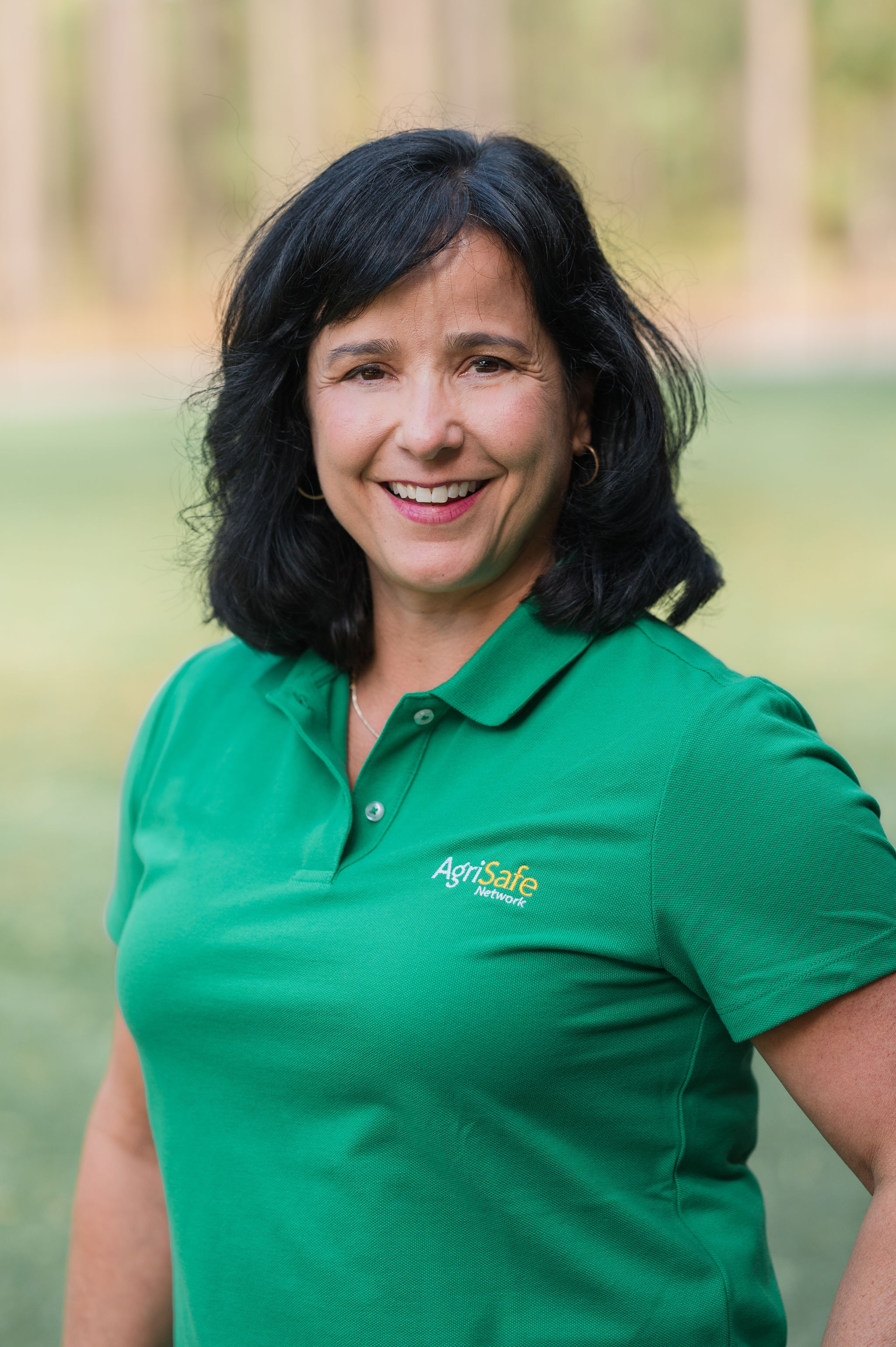
Natalie Roy, MPH
Chief Executive Officer
AgriSafe Network
As Chief Executive Officer of AgriSafe for over twenty years, Natalie Roy utilizes her public health training to improve the quality of health care offered to farm families. Natalie holds a Masters in Public Health from Tulane University. She is pleased to work in the area of agricultural health as it relates to her experience growing up on a farm in Canterbury New Hampshire.

Tara Haskins, DNP, MSN, RN, AHN-BC
Total Farmer Health Director, AgriSafe Network
Tara Haskins is a registered nurse with 33 years of clinical experience. She holds a Masters in Psychiatric Mental Health Nursing and a Doctorate of Nursing Practice in Forensics. For the last 12 years, she has been a nurse educator in psychiatric-mental health concepts. Tara has experience in crisis/suicide intervention and addiction treatment in both outpatient and inpatient settings. She is a 2018 AgriSafe Nurse Scholar graduate. As a National Rural Health Association Fellow, she collaborated on a policy paper on disaster preparedness and response in rural communities. Tara continues to advocate at a national level for rural health services and programming.

Marjorie McCullagh, PhD, RN, PHNA-BC, COHN-S, FAAOHN, FAAN
Professor and Occupational Health Nursing Program Director, University of Michigan School of Nursing
Marjorie McCullagh is Professor in the School of Nursing. She holds a PhD in nursing from the University of Michigan and has 20 years of clinical, teaching, and research experience in hearing conservation. Dr. McCullagh's career has focused on occupational health and safety, particularly as it relates to use of personal protection devices among farm operators and their families. Since 1985 she has had an active program of research in mitigating hazardous occupational exposures. She has conducted several randomized clinical trials, comparing the effectiveness of several approaches to influencing use of personal protective equipment. Dr. McCullagh is an associate professor and Director of the Occupational Health Nursing program at the University of Michigan School of Nursing.
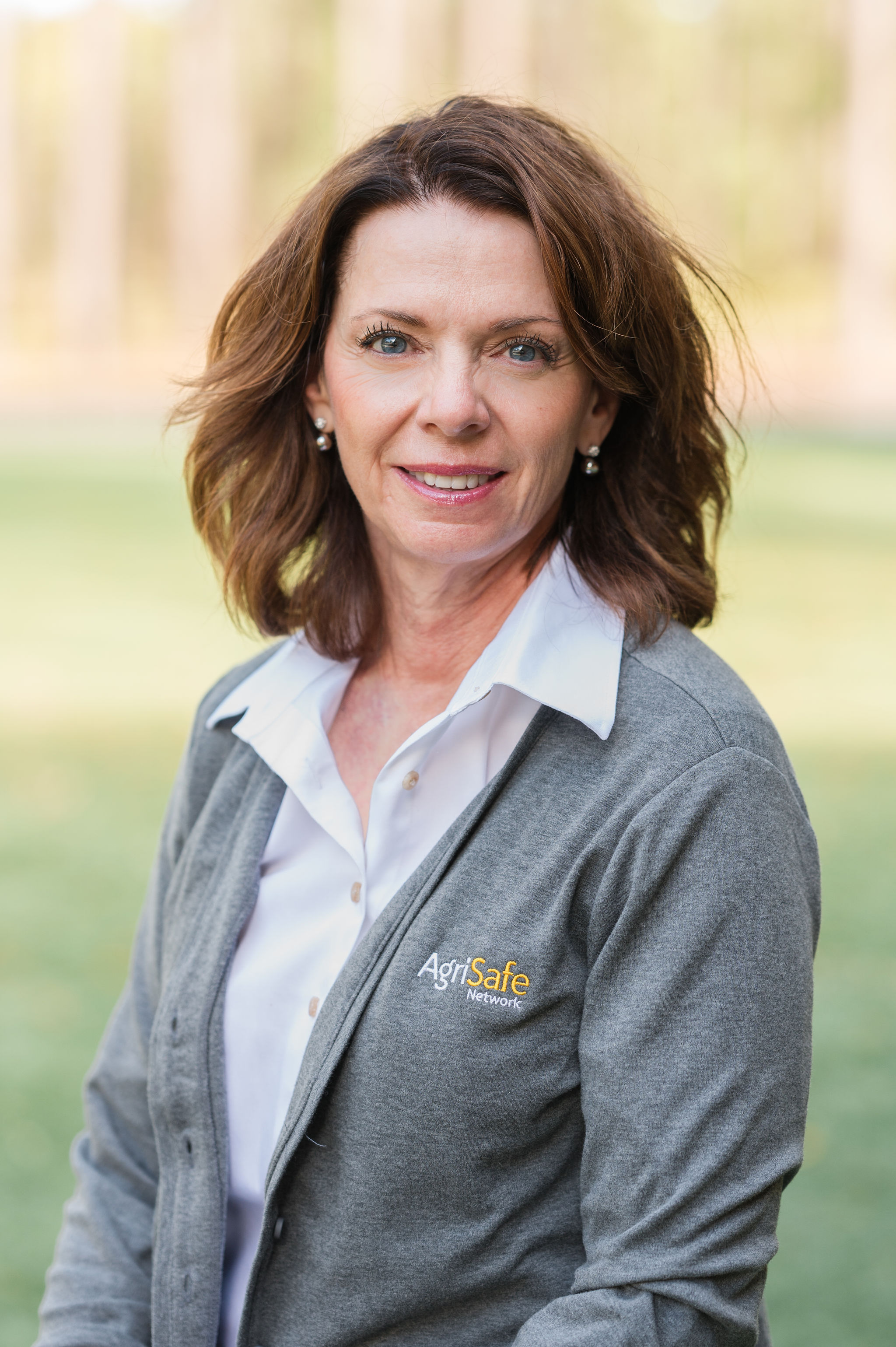
Linda Emanuel, BSN, RN
Community Health Director, AgriSafe Network
Shaped by Linda’s experience as a Registered Nurse working in rural communities as well as her proprietorship of a three generational Nebraska family farm, Linda naturally connects as an advocate and educator with agriculture producers and health care professionals. As the Community Health Director of the AgriSafe Network, she is responsible for curriculum design and outreach for the Veteran Farmer program, Total Farmer Health Coach program, and Women’s health. Her work is promoted on a state, regional and national level through webinars, onsite presentations, publications as well as user-friendly resources. Her passion to support the total farmer health concept drives her to act as a liaison between research and practice.
Linda has a diverse background in acute care nursing, intensive care, pediatrics, home health care, and rural primary care clinics. She is an AgriSafe Nurse Scholar, and a Nebraska LEAD fellow. She belongs to the American Nurses Association, Rural Nurses Organization, and Nebraska Nurses Association. She and her husband own and operate a row crop farming operation that has welcomed back their sons and families to continue a legacy.
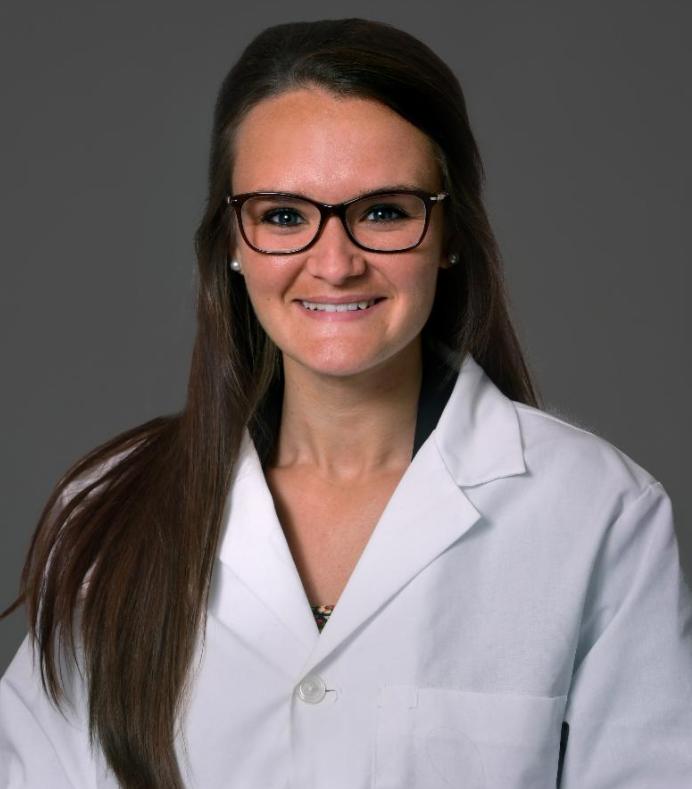
Katelyn Haydett, MS, DVM Candidate, Michigan State University
Katelyn Haydett, MS, DVM Candidate, Michigan State University
Katelyn Haydett has her BS in Molecular Biology from Defiance College, MS in Environmental Toxicology from Texas Tech University, and is currently a DVM candidate at Michigan State University. Her passion for public health began during a water testing project in Tanzania, Africa and has continued to evolve and include research focused on wildlife diseases and vector-borne zoonoses. Katelyn also served as a member of the AgriSafe Young Advisors Council, from 2016-2017. In her role as a rural leader, she assisted AgriSafe in design and launching of educational initiatives that can reduce farm related illness, injury and fatalities.
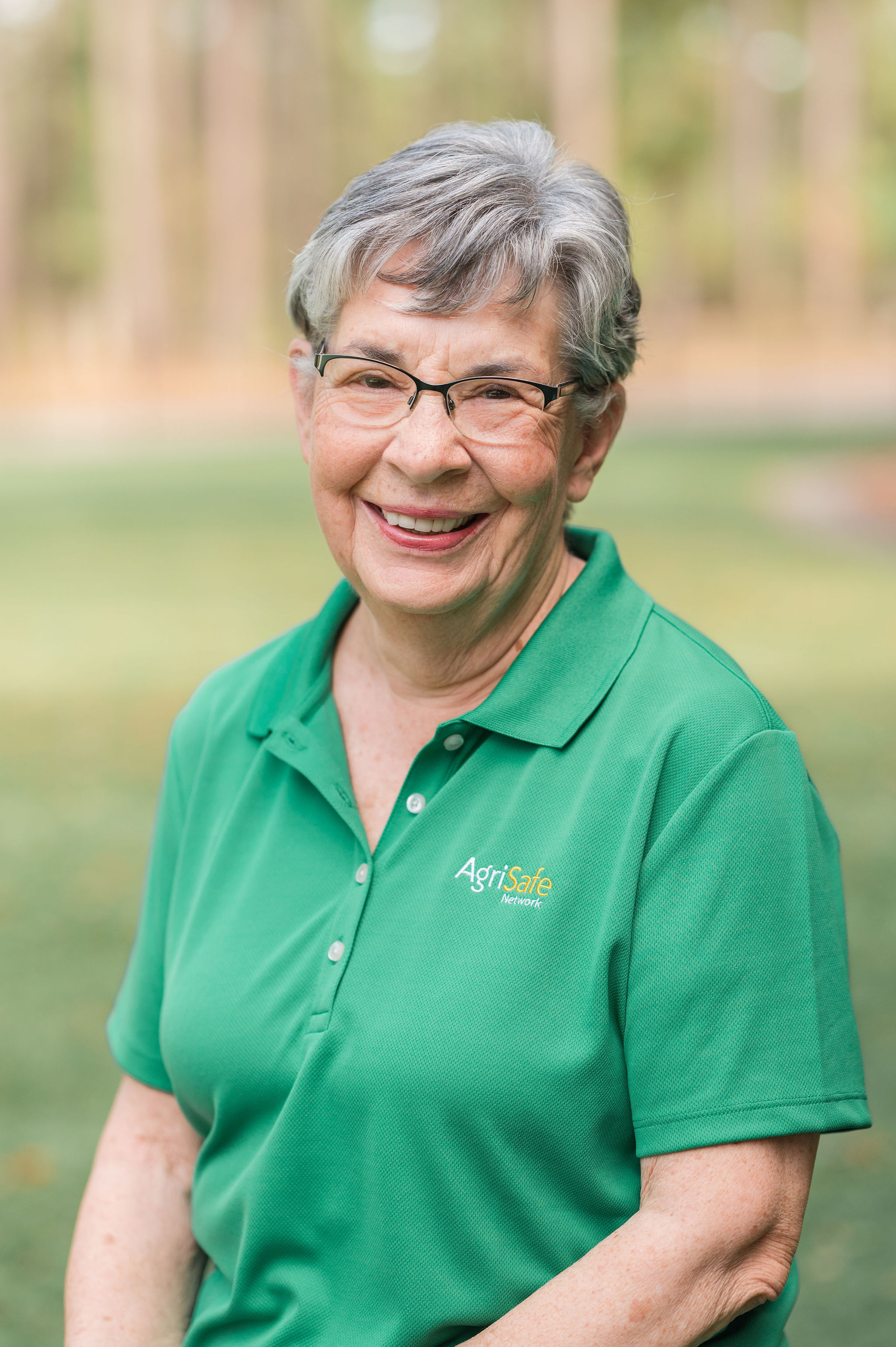
Charlotte Halverson, RN, BSN, COHN-S
Total Farmer Health Coach, AgriSafe Network
Charlotte served as the Clinical Director for AgriSafe thru the end of 2022 and is currently a Total Farmer Health Coach. Prior to this role, she worked for several years in hospital acute care settings and community education. During those years, Charlotte developed and managed a Rural Outreach Health service and a Parish Health Ministry department serving nine counties in northeast Iowa. She is a "charter graduate" of the University of IA agricultural occupational medicine course, is certified in occupational hearing conservation and completed the NIOSH Spirometry training. From 1997 to 2013, she provided agricultural occupational health services and program development for the National Education Center for Agricultural Safety.
-
Register
- Non-member - Free!
- Member - Free!
- More Information
-
Contains 78 Component(s), Includes Credits
The AgriSafe Nurse Scholar program is a distance learning opportunity available to rural nurses. Education and training, provided by experienced health & safety educators will enable rural nurses to increase their knowledge base in prevention, identification and assessment of diseases related to agricultural work exposures. Classes are in the form of webinars that can be viewed OnDemand. Nurses who complete this course will be eligible for 23 hours of continuing nursing education.
The AgriSafe Nurse Scholar program is a distance learning opportunity available to rural nurses, nurse practitioners, and nurse educators. Education and training, provided by experienced health & safety educators, will enable rural nurses to increase their knowledge base in the prevention, identification, and assessment of diseases related to agricultural work exposures. Nurses who complete this course will be eligible for 23 hours of continuing nursing education provided by the University of Nebraska Medical Center. Classes are in the form of webinars that can be viewed OnDemand (on your own time).
The AgriSafe Nurse Scholar course including all content, testing, and evaluation must be completed by March 1, 2025 to be eligible for Continuing Education. If you received a scholarship from AgriSafe, you must complete the program by the specified date on your awardee email, or you may be removed from the course and ineligible to receive CNEs.
Email nursescholar@agrisafe.org with any questions.
ACCREDITED CONTINUING EDUCATION
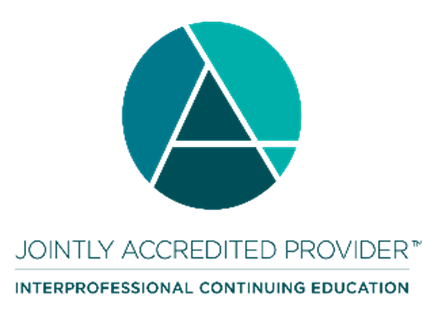
In support of improving patient care, this activity has been planned and implemented by the University of Nebraska Medical Center and AgriSafe. University of Nebraska Medical Center is jointly accredited by the Accreditation Council for Continuing Medical Education (ACCME), the Accreditation Council for Pharmacy Education (ACPE), and the American Nurses Credentialing Center (ANCC), to provide continuing education for the healthcare team.
The University of Nebraska Medical Center designates this activity for 23 ANCC contact hours.

This program is supported by:



Need some help? Fill out a help ticket here...
Accredited Continuing Education
In support of improving patient care, this activity has been planned and implemented by University of Nebraska Medical Center and AgriSafe. University of Nebraska Medical Center is jointly accredited by the Accreditation Council for Continuing Medical Education (ACCME), the Accreditation Council for Pharmacy Education (ACPE), and the American Nurses Credentialing Center (ANCC), to provide continuing education for the healthcare team.
The University of Nebraska Medical Center designates this activity for 23 ANCC contact hours.
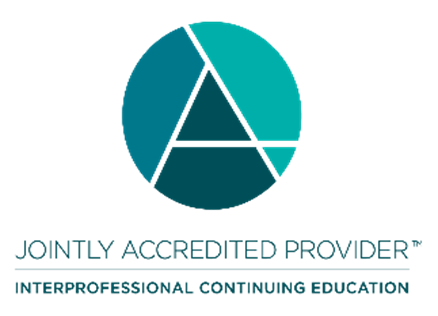


Christine Chasek, PhD, LIMHP, LADC, LPC
Associate Professor and Chair of the Counseling Department, University of Nebraska - Omaha
Christine Chasek is an Associate Professor at the University of Nebraska Omaha. She has strong rural roots and teaches many behavioral health classes in a Midwestern rural University. Dr. Chasek has more than 20 years of experience practicing mental health and drug and alcohol counseling as a Licensed Independent Mental Health Practitioner and a Licensed Alcohol and Drug Counselor in rural areas. Dr. Chasek also serves on the Nebraska Alcohol and Drug Licensing Board and is President of the International Association of Addiction and Offender Counselors.

Kelley J. Donham, MS, DVM, DACVPM
Consultant in Agricultural Medicine and the Rural Health Clinic of Eastern Iowa
Dr. Donham is an Emeritus Professor, Occupational and Environmental Health, Iowa College of Public Health, having served as a professor on the faculty from 1973 – 2013. The following are activities that he pursued:
- Lead the Agriculture at Risk Policy Process, leading to the NIOSH National Agricultural Health and Safety Program (1987-1990)
- Held the Pioneer Endowed Chair in Rural Health and Safety from 2009 – 2013.
- Founded and directed the Agricultural Health and Safety Training Program at the University of Iowa, and the Building Capacity Training Program in Agricultural Medicine (1974 – 2013);
- Founded and directed Iowa’s Center for Agricultural Safety and Health (I-CASH 1990 - 2013);
- Founded and directed the Iowa Health and Safety Service Network (1987-2003) (now the AgriSafe Network);
- Founded and directed the Certified Safe Farm Program (1997- 2007).
- Served as Deputy Director of The Great Plains Center for Agricultural Health (GPCAH) 1990 – 2013).
- Co-founder of the Rural Health and Safety Clinic of Greater Johnson Country (2011).
- He has published over 160 peer-reviewed articles, three books, and over 25 book chapters in the field of Agricultural Health and Safety.
- Published 4 books in the field of rural health and Agricultural Medicine. He (with co-author Anders Thelin MD of Sweden) published the first textbook in the field “Agricultural Medicine: Occupational and Environmental Health for the Health Professions” (Blackwell, 2006, Second edition 2016).
Kelley was born and raised on a swine and cow/calf farm in Johnson County, Iowa, where he was actively involved in the family farm operation for many years. He still is actively involved in agriculture as he owns and manages with a colleague, the 440-acre Pleasant Creek Farm. Kelley obtained a B.S in Premedical Sciences, and an M.S. in Preventive Medicine and Environmental Health from the University of Iowa, College of Medicine, and a Doctor of Veterinary Medicine degree from Iowa State University. He practiced veterinary medicine for several years before returning to the University of Iowa as a faculty member in 1973. He achieved the rank of full Professor in 1984.

Linda Emanuel, BSN, RN
Community Health Director, AgriSafe Network
Shaped by Linda’s experience as a Registered Nurse working in rural communities as well as her proprietorship of a three generational Nebraska family farm, Linda naturally connects as an advocate and educator with agriculture producers and health care professionals. As the Community Health Director of the AgriSafe Network, she is responsible for curriculum design and outreach for the Veteran Farmer program, Total Farmer Health Coach program, and Women’s health. Her work is promoted on a state, regional and national level through webinars, onsite presentations, publications as well as user-friendly resources. Her passion to support the total farmer health concept drives her to act as a liaison between research and practice.
Linda has a diverse background in acute care nursing, intensive care, pediatrics, home health care, and rural primary care clinics. She is an AgriSafe Nurse Scholar, and a Nebraska LEAD fellow. She belongs to the American Nurses Association, Rural Nurses Organization, and Nebraska Nurses Association. She and her husband own and operate a row crop farming operation that has welcomed back their sons and families to continue a legacy.

Charlotte Halverson, RN, BSN, COHN-S
Total Farmer Health Coach, AgriSafe Network
Charlotte served as the Clinical Director for AgriSafe thru the end of 2022 and is currently a Total Farmer Health Coach. Prior to this role, she worked for several years in hospital acute care settings and community education. During those years, Charlotte developed and managed a Rural Outreach Health service and a Parish Health Ministry department serving nine counties in northeast Iowa. She is a "charter graduate" of the University of IA agricultural occupational medicine course, is certified in occupational hearing conservation and completed the NIOSH Spirometry training. From 1997 to 2013, she provided agricultural occupational health services and program development for the National Education Center for Agricultural Safety.
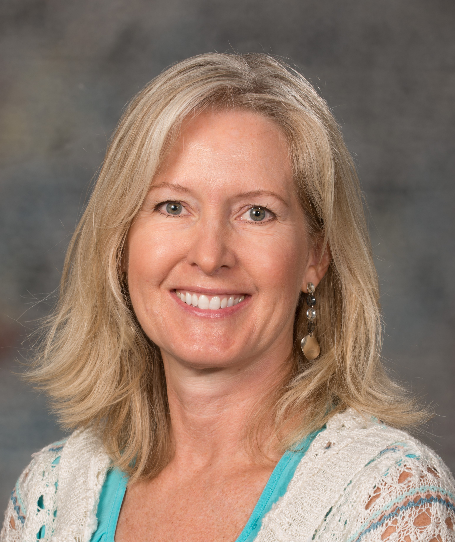
Susan Harris, MLS
Educator – Rural Health, Wellness, and Safety University of Nebraska Extension (Retired)
Susan has a 14-year history of education, liaison, and administrative work in health, wellness, and safety. The passion she brings to teaching about the crucial need for quality sleep is derived from personal experience and curiosity about sleep. This has resulted in extensive research on the topic and interviews with pulmonologists, physicians, sleep center managers, sleep study patients, professors, and research experts. Susan’s education includes a bachelor’s degree in Family and Consumer Sciences in Business, as well as a master’s degree in Health and Human Performance – Gerontology.
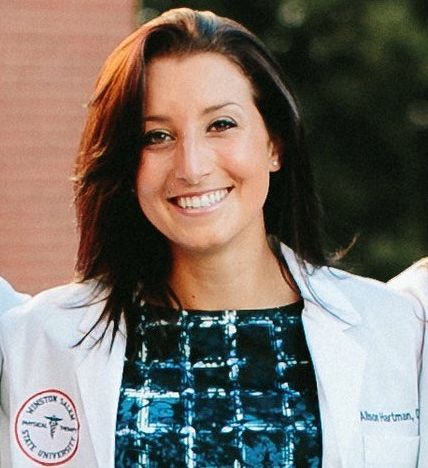
Dr. Ali Hartman, DPT
Consulting PT, CF-L1, Pro-Activity North Carolina
Clinically trained as a Doctor of Physical Therapy, Ali harbors a deep appreciation for the human body and the resilience it holds. Unlike traditional rehabilitation professionals, Ali spends the majority of her time outside of the clinic walls, embedding herself within working populations to maximize the health, well-being, and performance of groups and individuals while leveraging her unique experience in workplace prevention and health promotion.
She has completed advanced certifications in Applied Prevention and Health Promotion Therapies, and residency at Pro-Activity, a human achievement company that has specialized in workplace prevention and health promotion with industrialized workforces for the past 20 years. Ali was recently named managing partner of Pro-Activity’s North Carolina field office.

Tara Haskins, DNP, MSN, RN, AHN-BC
Total Farmer Health Director, AgriSafe Network
Tara Haskins is a registered nurse with 33 years of clinical experience. She holds a Masters in Psychiatric Mental Health Nursing and a Doctorate of Nursing Practice in Forensics. For the last 12 years, she has been a nurse educator in psychiatric-mental health concepts. Tara has experience in crisis/suicide intervention and addiction treatment in both outpatient and inpatient settings. She is a 2018 AgriSafe Nurse Scholar graduate. As a National Rural Health Association Fellow, she collaborated on a policy paper on disaster preparedness and response in rural communities. Tara continues to advocate at a national level for rural health services and programming.

Sarah Hunt, DNP, MSN, APRN, FNP-BC
Regis University and Sanford Center for Digestive Health

Charles Jennissen, MD
Clinical Professor, University of Iowa Carver College of Medicine
Charles Jennissen, MD, is a pediatric emergency medicine physician and a Clinical Professor in the Departments of Pediatrics and Emergency Medicine at the University of Iowa Carver College of Medicine. Dr. Jennissen grew up on a dairy farm in central Minnesota. This plays a large part in his interest in safety and injury prevention, particularly regarding children and teens, and those who work and live on farms. Most of his research activities have addressed injury-related issues, especially those involving off-road vehicles. Dr. Jennissen is very active in the Iowa ATV Safety Taskforce and is a member of a national coalition led by the Consumer Federation of America that has been working to inform the public and governing officials of the dangers of off-road vehicles on public roads. He has been an advisory board member of I-CASH (Iowa Center for Agricultural Safety and Health) for 22 years. He is proud to have received the SAFE KIDS Iowa “People Who Make a Difference” Award in 2006.

Steven Kirkhorn, MD, MPH, FACOEM
Medical Director
AgriSafe Network
As AgriSafe Medical Director, Dr. Kirkhorn is responsible for the strategic direction and technical review of the occupational health curriculum, resources, and services. Dr. Kirkhorn serves as the medical leader liaison offering program wide engagement and collaboration, visibility, and opportunity directly contributing to AgriSafe’s success.
In addition to his role at AgriSafe, Dr Kirkhorn serves as Occupational Medicine Advisor to the NIOSH Upper Midwest Center for Agricultural Safety and Health at the University of Minnesota.
He received a BS in Zoology and MD at the University of Minnesota and a MPH in Environmental Health at the University of Minnesota School of Public Health. He served as the Academic Director of the Midwest Center for Occupational Health and Safety of the HealthPartners Occupational Environmental Medicine Residency. He is boarded in Occupational Medicine and Family Practice and has been on the adjunct faculty of the University of Minnesota and University of Wisconsin Family Medicine Departments. He has been a practicing Occupational Medicine physician since 1991 and prior to that was a rural Family Practitioner for 10 years in Alaska and Wisconsin. He had completed a year sabbatical and fellowship in Agricultural Medicine in 1997-1998.
He previously was the Medical Director of the National Farm Medicine Center and Chair of Occupational Health and Chair/ Regional Service Line Director of Occupational Health at Marshfield Clinic in Wisconsin. He has previously been on the board of AgriSafe and editor for 8 years of the Journal of Agromedicine as well as participating in of multiple agricultural health organizations nationally and in Minnesota and Wisconsin.
He is the recently retired Director and Section Chief of Occupational Health at the Minneapolis Veterans Administration Health Care System and Adjunct Associate Professor in the Division of Environmental Health Sciences in the University of Minnesota School of Public Health and Assistant Clinical Professor in the Department of Medicine University of Minnesota Medical School.
His interests include, agricultural and rural occupational and environmental health, curriculum development, as well as birdwatching, biking, and kayaking. He is also a Master Naturalist through the University of Minnesota Extension.

Marjorie McCullagh, PhD, RN, PHNA-BC, COHN-S, FAAOHN, FAAN
Professor and Occupational Health Nursing Program Director, University of Michigan School of Nursing
Marjorie McCullagh is Professor in the School of Nursing. She holds a PhD in nursing from the University of Michigan and has 20 years of clinical, teaching, and research experience in hearing conservation. Dr. McCullagh's career has focused on occupational health and safety, particularly as it relates to use of personal protection devices among farm operators and their families. Since 1985 she has had an active program of research in mitigating hazardous occupational exposures. She has conducted several randomized clinical trials, comparing the effectiveness of several approaches to influencing use of personal protective equipment. Dr. McCullagh is an associate professor and Director of the Occupational Health Nursing program at the University of Michigan School of Nursing.

Jill Poole, MD
Associate Tenured Professor, Division of Pulmonary, Critical Care, Sleep and Allergy Medicine and Medical Director of Allergy Services at the University of Nebraska Medical Center
Dr. Poole is a board-certified clinical allergist and immunologist with an active laboratory focused on understanding agriculture-related environmental organic dust-induced lung and systemic bone disease. This has been her focus for over ten years with grant funding from the National Institute of Environmental Health Sciences and the National Institute for Occupational Safety and Health. She has had several important findings as part of her funded work. She enjoys collaborating with agriculture research centers in Nebraska and Colorado, particularly in human cross-sectional and epidemiological studies, and mentors PhD and post-doctoral students, and pulmonary fellows.

Athena Ramos, PhD, MBA, MS, CPM
Community Health Program Manager, Associate Professor, Center for Reducing Health Disparities/Department of Health Promotion, Social, and Behavioral Health, University of Nebraska Medical Center
Athena Ramos is an Associate Professor in the Department of Health Promotion and is affiliated with the Center for Reducing Health Disparities and the Central States Center for Agricultural Safety and Health (CS-CASH) at the University of Nebraska Medical Center (UNMC) in Omaha, Nebraska. She leads a Latino outreach and engagement team and serves as principal investigator for a number of community-based health and social research and education initiatives in such areas as agricultural health and safety, immigrant integration, and community well-being. She is an experienced administrator, program manager, and junior researcher with proven ability to develop and implement social, health, and human service programs with culturally diverse populations. She has over 15 years of experience in health promotion, strategic thinking, community development, and public relations.
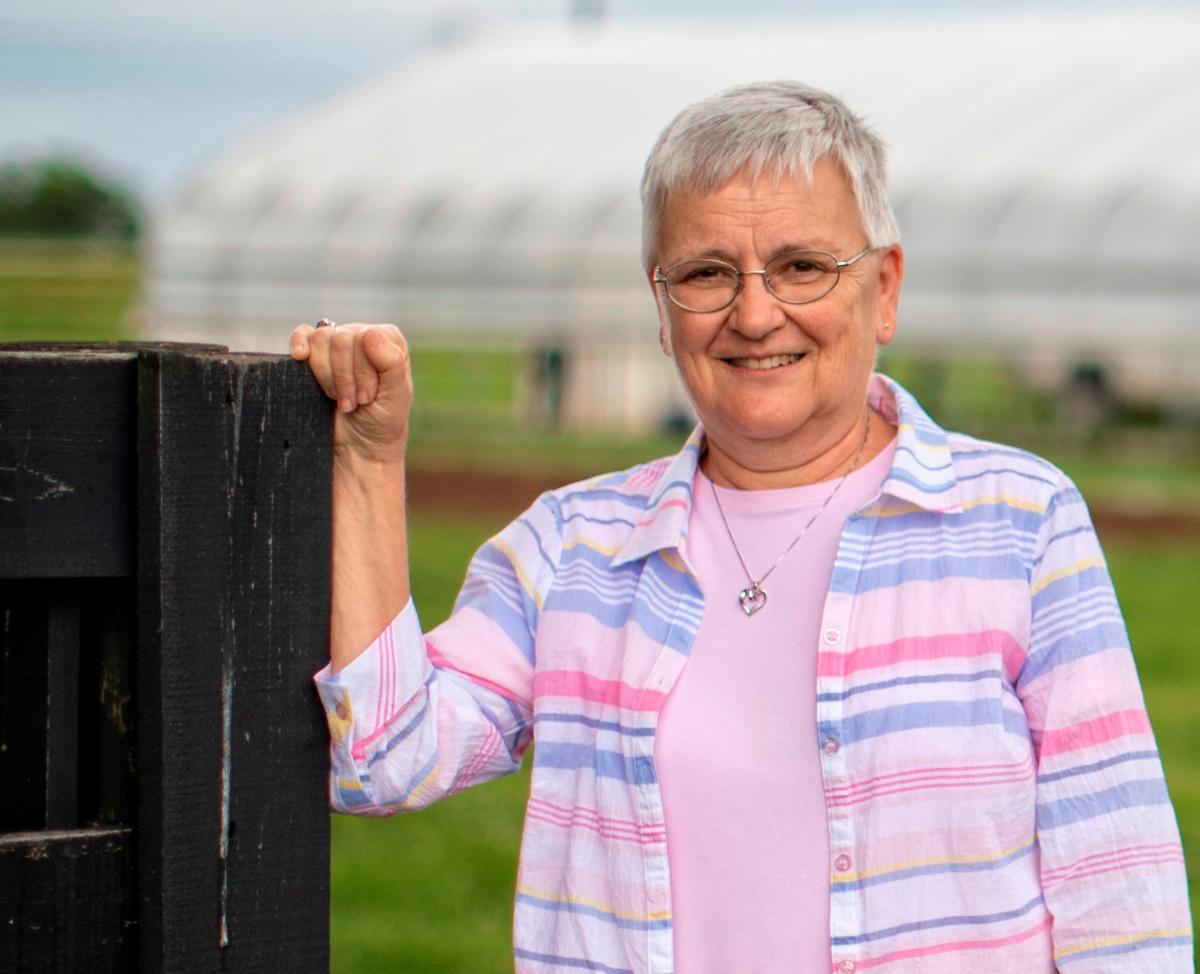
Deborah B. Reed, MSPH, PhD, RN, FAAOHN, FAAN
Professor of Extension Community Health and Safety, University of Kentucky College of Agriculture, Food, and Environment, Distinguished Professor Emeritus, College of Nursing
Debbie grew up on family farm in Kentucky just a few miles from the University of Kentucky. She is currently the Extension Professor of Community Health and Safety at the University of Kentucky College of Agriculture, Food and Environment, affectionately known as the Ag Nurse. For the past 29 years Dr. Reed has worked with farm families throughout the nation to promote their health and prevent the many injuries that are so common in this occupation. She has developed and tested health education programs for children and youth on farms, and is upscaling the Farm Dinner Theater, a didactic readers’ theater for the farmer populations. The program that was designated as an Edge Runner by the America Academy of Nursing and is currently funded by the Rita and Alex Hillman Foundation. Dr. Reed is recognized internationally for her work on farm health and safety and farm family stress and suicide prevention. She loves communing with nature, , horses, angus cattle, and smelling newly mown hay.

Knesha Rose-Davison, MPH
Public Health and Equity Director
AgriSafe Network
Mrs. Knesha Rose-Davison serves as the Public Health and Equity Director for AgriSafe Network. She has over 17 years of public health experience in maternal and child health, community health, health disparities, and advocacy. In May 2016, she joined AgriSafe Network as their health communications director, quickly growing into their public health programs director, where she managed employer-employee safety training for youth working in agriculture, opioid safety for health providers and agricultural workers, and women’s health topics. Knesha obtained her Bachelor of Science in Biological Sciences (2002) and a Master of Public Health (2006) from Northern Illinois University. In June 2016, she obtained a certificate in Agricultural Medicine focused on rural occupational health, environmental health, and safety. She is a member of the American Public Health Association and the Louisiana Public Health Association, where she serves in leadership. Knesha is passionate about serving vulnerable populations and ensuring health access and equity, and she aligns all her work with these causes.

Natalie Roy, MPH
Chief Executive Officer
AgriSafe Network
As Chief Executive Officer of AgriSafe for over twenty years, Natalie Roy utilizes her public health training to improve the quality of health care offered to farm families. Natalie holds a Masters in Public Health from Tulane University. She is pleased to work in the area of agricultural health as it relates to her experience growing up on a farm in Canterbury New Hampshire.
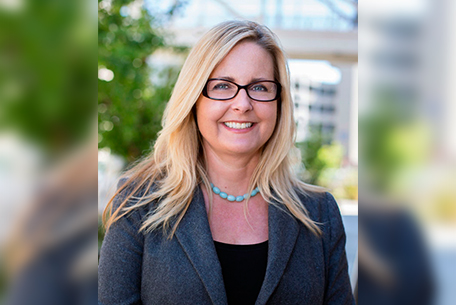
Diana R. Simmes, MPH
Pesticide Medical Education Director University of California Davis Continuing & Professional Education + Courtesy Assistant Professor of Practice Oregon State University
Diana Simmes is the Pesticide Medical Education Director of PERC-med. PERC-med is a Cooperative Agreement between the U.S. EPA and the University of California Davis and in collaboration with Oregon State University. Prior to joining PERC-med Ms. Simmes was the Academic Coordinator of the Institute for Fetal Alcohol Spectrum Disorders Discovery at UC San Diego. She has lead maternal and child health research studies including serving in a position critical to the successful operation of the National Children's Study-San Diego County, a longitudinal study examining the effects of environmental influences on child health and development. She holds an MPH from Boston University and has consulted with the American Academy of Pediatrics, directed programs on pressing public health issues, and collaborated with health care providers and community-based organizations across the country.
-
Register
- Non-member - $500
- Member - $400
- More Information
Quick Search
Technical Difficulties
Submit a help ticket if you need technical assistance.
Having Computer Issues? Please check your internet browser and security settings to allow permissions for this website. Browsers: Microsoft Edge version 40 or higher; Chrome version 60 or higher, Firefox version 50 or higher; or Safari version 10.1 or higher. We recommend using Google Chrome or Firefox as your browser.
